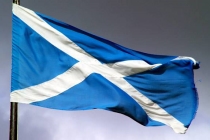Cape Breton Gaelic College - A Beacon Of Scots Gaelic Language And Culture In North America
To promote, preserve and perpetuate through studies in all related areas: the culture, music, language, arts, crafts, customs and traditions of immigrants from the highlands of Scotland.
– Mission Statement of the Cape Breton Gaelic College
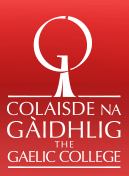
The Cape Breton Gaelic College (Colaisde na Gàidhlig) is located in Englishtown, Nova Scotia on Cape Breton’s northeast coast. The Gaelic College was founded in 1938 by people from the local community who wanted to create a memorial for the Gaelic speaking pioneers of Cape Breton. That year, the Cape Breton Island Gaelic Foundation began the work of raising funds to establish the Gaelic College. The first building at the site on the Bay of St. Ann’s was a log cabin raised in 1939. Classes in the early years included Gaelic language, Gaelic grammar, Gaelic song, bag piping, and the history of Gaelic culture in Scotland, Nova Scotia and North America. Subjects such as folklore and highland dancing were soon added.
Today the Cape Breton Gaelic College is a modern and innovative institution. From its humble beginnings, this unique institution has expanded and gained an international reputation for its contribution to the preservation and development of the Scots Gaelic language and culture of Nova Scotia. The only institution of its kind in North America, students of all ages and ability travel here from around the world to study.
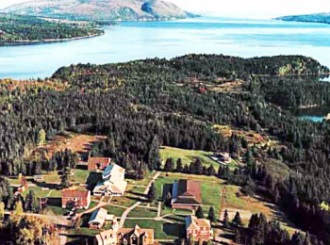
Colaisde na Gàidhlig / The Gaelic College has an international reputation for its contribution to the promotion and preservation of traditional Gaelic culture, offering instruction in over ten disciplines, and year-round learning and fun. As a cultural destination, it will delight visitors with the unique opportunity to experience first-hand the living culture of the Nova Scotia Gaelic people.
The College curriculum reflects the legacy of what was once a thriving Gaelic speaking Celtic nation. The curriculum includes a program in Gaelic Immersion and Gaelic language instruction in Gaelic drama, Gaelic song and Gaelic storytelling. Emphasis is also placed on Cape Breton’s rich musical heritage with courses in the Bodhran Celtic drum, Cape Breton Fiddling, Cape Breton Piano Accompaniment and the Celtic Harp.
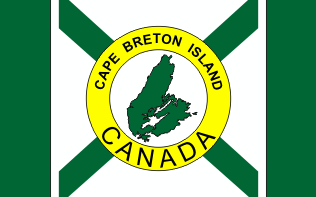
It is widely accepted that at the high point of Nova Scotia’s Gaelic culture that there were approximately 100,000 Gaelic speakers (some estimate approach twice this number), residing in the Canadian Maritime with Cape Breton Island as the linguistic stronghold. The 18th and 19th centuries witnessed upheaval in the centuries old way of life in the Scottish Highlands and Islands of Scotland. Events led to emigration from Scotland to the new worlds with Cape Breton as a primary destination: “Between 1817 and 1838 alone, the population in Cape Breton grew from approximately 7,000 people to 38,000 people. Almost all these people were Gaelic speaking Scots from the Western Highlands and Islands of Scotland.” The new immigrants established settlements in Cape Breton and there quickly developed a thriving Scots Gaelic culture. (Nova Scotia Provincial Office of Gaelic Affairs Website)
Cape Breton Island is today home to world’s only Gaelic speaking population outside of Europe. The 2011 Canadian census reported 1,300 Gaelic speakers, with an additional 2,000 enrolled in Gaelic language programs around the province. The Celtic tongue of Nova Scotia is experiencing a remarkable comeback and the credit in large part can be attributed to role played by the Gaelic College in nurturing a culture and language which has made its way back from the precipice.
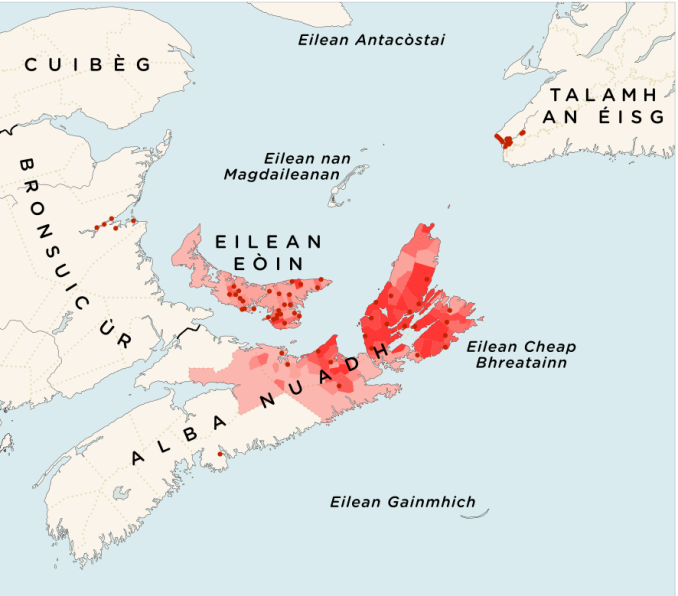
Kitchen Fest (Féis a’ Chidsin)
This summer the Gaelic College are sponsoring the debut of the Cape Breton Island Kitchen Fest (Féis a’ Chidsin) from June 29 thru July 5. The Kitchen Fest features over 80 different shows and events highlighting the music, culture, and language of the Gael. In addition to events on the campus of the Gaelic College events and performance are planned throughout Cape Breton. Performances on the campus of the college include an Opening Concert in the Great Hall of the Clans (Talla Mór) and acts such as Cape Breton Fiddler Glenn Graham who was nominated in 2002 for “Male Artist of the year” by the EMCA, the Gaelic College Piping Ensemble Nuallan which seeks to “represent, promote and explore the ‘Gaelic Dance’ style of Cape Breton Piping” and Heather Rankin.
In addition to the performance on the campus of the Gaelic College, 10 establishments throughout Cape Breton will host nightly performances. The mix includes Governors Pub in Sydney, the Old Triangle in Sydney, the Doryman Pub and Grill in Cheticamp, the Celtic Music Interpretive Centre in Judique, Bras d’Or Lakes Inn in St. Peter’s, the Red Shoe Pub in Mabou, the Keltic Lodge in Ingonish, Cabot Public House in Inverness, the Baddeck Yacht Club in Baddeck, and the Waterfront Centre in Whycocomagh. Guests such as J.P. Cormier, Buddy MacDonald, Howie MacDonald, Joey Beaton, Wendy MacIsaac and Mary Jane Lamand, Cyril MacPhee, Troy MacGillivray, Kenneth and Calum MacKenzie, Còig, and many more will be featured during the 60 intimate performances, all with a Gaelic-speaking host to usher in the night.
External Links
The Cape Breton Gaelic College
The Cape the Breton Island Kitchen Fest
- Scottish
- English
- Log in to post comments

